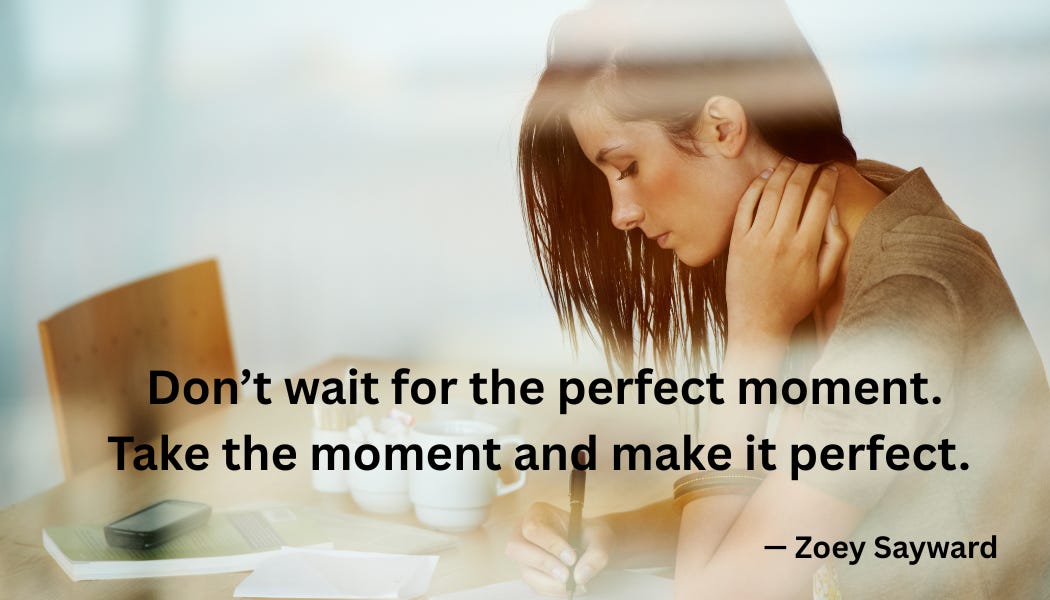You're waiting for permission.
Not consciously. You'd probably deny it if asked directly. But somewhere in the back of your mind, there's a voice asking: "Who am I to do this?"
Who am I to start a newsletter?
Who am I to launch this product?
Who am I to call myself a writer?
Who am I to charge for my work?
The permission you're waiting for isn't coming.
Because here's the thing about creative work: there's no licensing board. No official body that grants you the right to make things. No ceremony where someone hands you a certificate that says "Yes, you're allowed to be an artist now."
The permission you're seeking doesn't exist.
“You don’t have to wait until you’re ready. The moment you feel ready is the moment you start.” — Unknown
The Myth of Qualification
We've been trained to believe in credentials. In school, you needed permission to speak, to leave the room, to turn in your work. In jobs, you need approval for budgets, for decisions, for changes.
So we carry this pattern into our creative lives. We think we need:
More followers before we can call ourselves influencers
More experience before we can freelance
More skills before we can teach
More success before we can share our story
But creative work doesn't follow institutional rules. There's no minimum viable audience, no required years of experience, no standardized test you need to pass.
The only qualification you need is the willingness to begin.
“Start where you are. Use what you have. Do what you can.” — Arthur Ashe
The Impostor's Advantage
That voice asking "Who am I to do this?" isn't your enemy. It's information.
It's telling you that you're about to do something that matters. Something that stretches you. Something that puts you at risk of judgment, failure, or success.
The impostor feeling isn't a bug—it's a feature. It means you're operating at the edge of your comfort zone, which is exactly where growth happens.
Every expert was once a beginner who felt like a fraud. Every successful creator started before they felt ready. Every person you admire began with the same question: "Who am I to do this?"
The difference? They did it anyway.
“The worst enemy to creativity is self-doubt.” — Sylvia Plath
Permission Patterns to Break
Waiting for the "right" moment: There's no perfect time to start. Your schedule won't magically clear. Your skills won't suddenly feel adequate. Your confidence won't arrive on schedule.
Seeking external validation: Asking friends "Do you think I should...?" isn't research—it's procrastination. Most people will default to discouraging risk because they're protecting their own comfort zones.
Requiring complete preparation: You don't need to know everything before you start. You need to know enough to take the next step. The rest you'll learn by doing.
Comparing your beginning to someone else's middle: That creator you admire? They started messy too. Their first work wasn't their best work. Neither will yours be.
“You miss 100% of the shots you don’t take.” — Wayne Gretzky
The Self-Permission Practice
Here's how to grant yourself the permission you're waiting for:
1. Start before you're ready
Ready is a feeling, not a fact. You'll never feel completely prepared. Begin anyway.
2. Claim your space
Call yourself what you want to become. Writer. Designer. Entrepreneur. The title doesn't require external approval.
3. Ship imperfect work
Perfect is the enemy of done. Done is the enemy of never. Choose done.
4. Ignore the qualification police
Someone will always think you're not ready, not experienced enough, not credentialed enough. Their opinion isn't required for your permission slip.
5. Remember: everyone's making it up
That expert you follow? They're figuring it out as they go too. Confidence often comes from doing, not from knowing.
Today's Edit
What are you waiting for permission to do?
Write it down. Be specific.
Now ask yourself: Who exactly are you waiting to hear from? What would they need to say? What credentials would they need to have?
Chances are, you can't answer those questions clearly. Because the permission you're seeking is imaginary.
So give it to yourself.
Right now. Today.
You have permission to:
Start that project
Share your work
Charge what you're worth
Call yourself what you want to become
Begin before you feel ready
The permission slip is signed. The authority is you.
What are you going to do with it?
The next Journal Edit will explore why "finding your voice" is the wrong goal entirely. Subscribe to make sure you don't miss it.




Thank you for your well-timed post! I've been telling myself "someone else will write a book" mostly due to fear and insecurity. I have an idea, but my inner critical parent keeps telling me I'm not good enough to see it through. So your posts resonates!